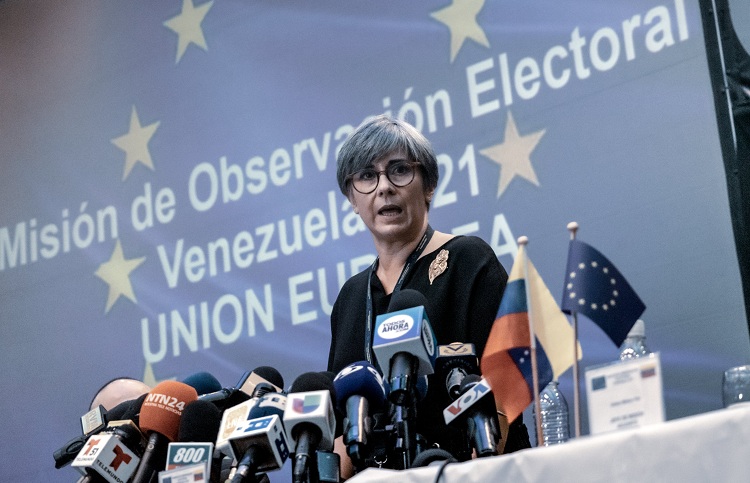The Diplomat
The Spanish Government referred yesterday to the conclusions of the EU Election Observation Mission (EU-EOM) in Venezuela to celebrate the “significant improvements compared to other electoral calls” and to claim the regime of Nicolás Maduro to put an end to the “serious deficiencies” denounced by the European observers.
“The regional and municipal elections held on November 21 in Venezuela have not met democratic expectations even though they were an improvement over previous elections,” the Ministry of Foreign Affairs said in a statement.
“The European Electoral Observation Mission has identified significant improvements with respect to other electoral calls in the development and transparency of the electoral process, but not enough given that serious deficiencies persist, such as the arbitrary disqualification of opposition candidates, the abuse of State resources, unequal access to the media” and the “lack of judicial independence” and “respect for the rule of law,” it continued. “Added to this is a high degree of abstention,” it added.
Therefore, “the Government of Spain calls on the Venezuelan authorities to put an end to these practices identified by the European Electoral Observation Mission and to quickly resume negotiations with the opposition to ensure that the upcoming presidential elections are fully free and competitive,” stated Foreign Affairs.
“Spain appreciates that these regional and local elections have counted with the participation of the majority of Venezuelan political parties and expresses its willingness to work with the different actors of the electoral system to comply with the recommendations made by the EU Mission in its final report,” it continued. “It thus shares the objective of ensuring compliance with international standards in future electoral processes, in agreement with both the authorities and the main opposition actors”, he concluded.
The preliminary report of the European Union on the Venezuelan elections, made public last Tuesday by the head of the observer mission, the Portuguese Socialist MEP Isabel Santos, appreciates some “improvements” -such as the participation of the main opposition parties, the constitution of a more balanced National Electoral Council or a reliable and audited counting system – but also “important structural deficiencies”, such as “arbitrary disqualifications of candidates”, the lack of judicial independence, the “non-adherence to the rule of law”, the “extensive” use of State resources and the unequal access to the media.
With a turnout of 42%, Chavistas won in 20 of the country’s 23 states, in addition to Caracas, in last Sunday’s regional and local elections, the first in five years with the participation of the main opposition parties and the first in fifteen years with international observers. The EU Election Observation Mission (EU-EOM) was formed by 130 members and was boycotted by the European People’s Party in order “not to be part of Maduro’s electoral farce in Venezuela”.
After the holding of the elections, the PP has denounced the “complicit silence” of the Government before the “whitewashing” of the regime of Nicolás Maduro by the former Prime Minister José Luis Rodríguez Zapatero and has criticized, through its spokesperson in Congress, Valentina Martínez Ferro, that the Minister of Foreign Affairs, José Manuel Albares, had said “nothing” about the elections “in an unprecedented exercise of leadership where he is waiting for others to say it first”.







